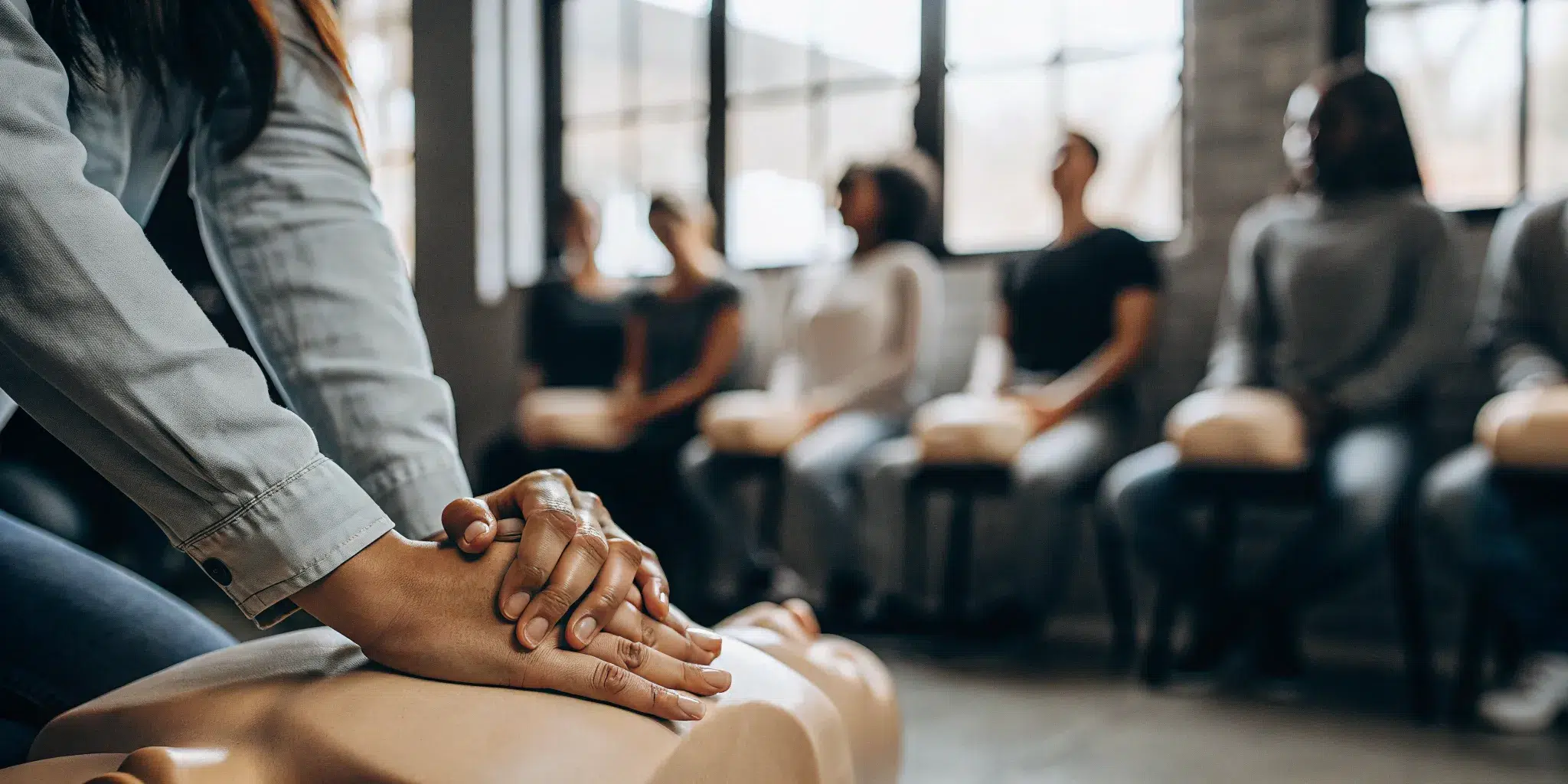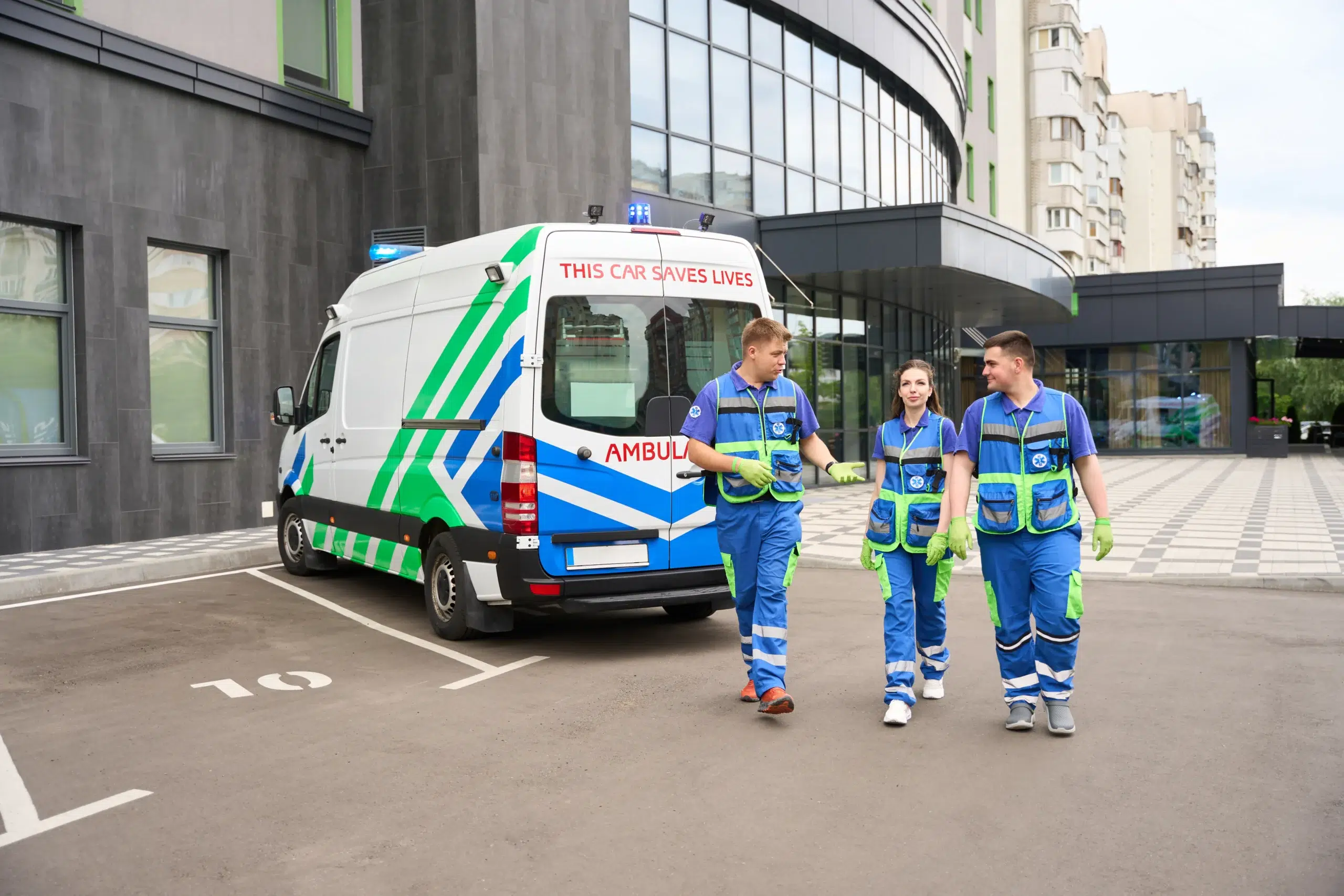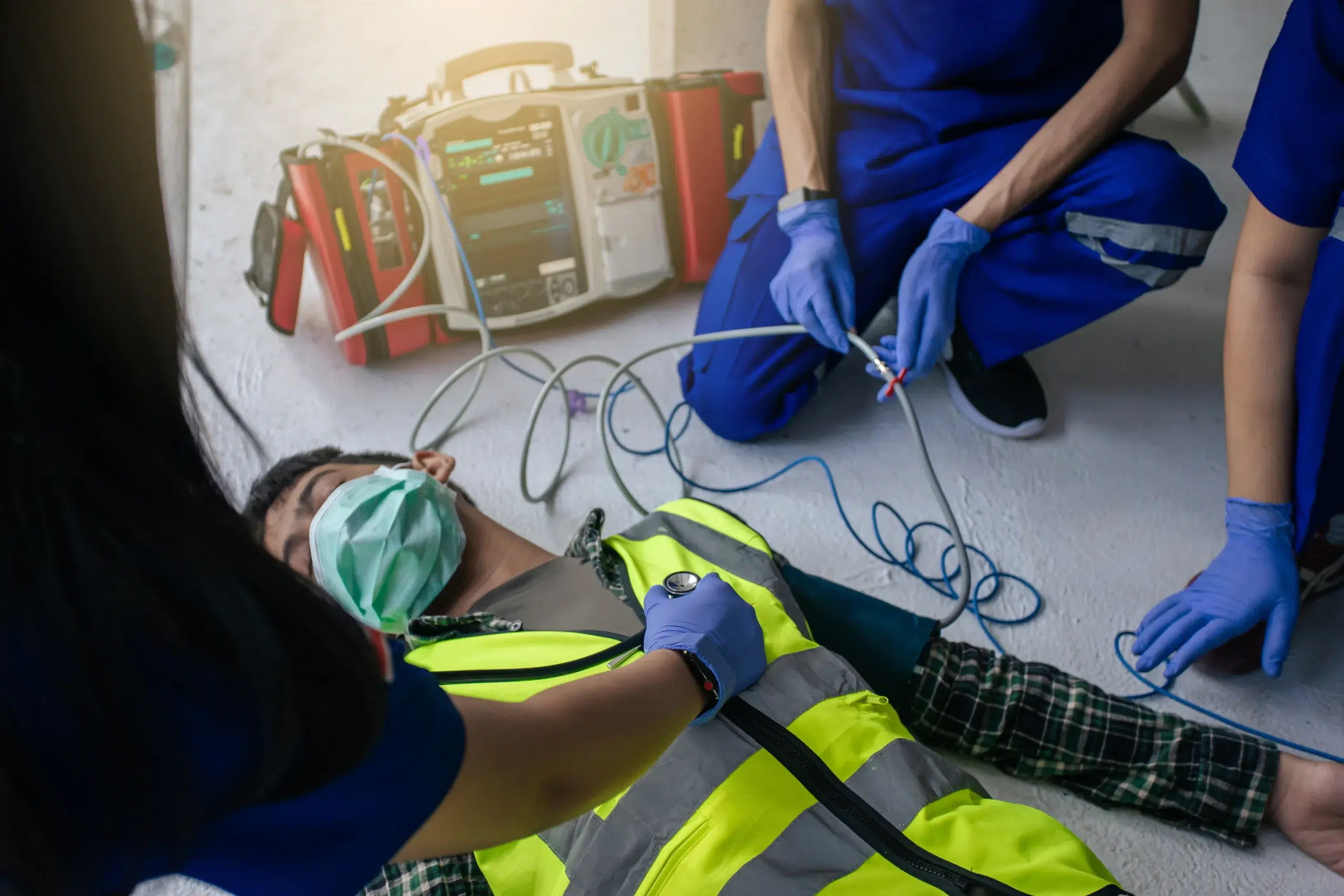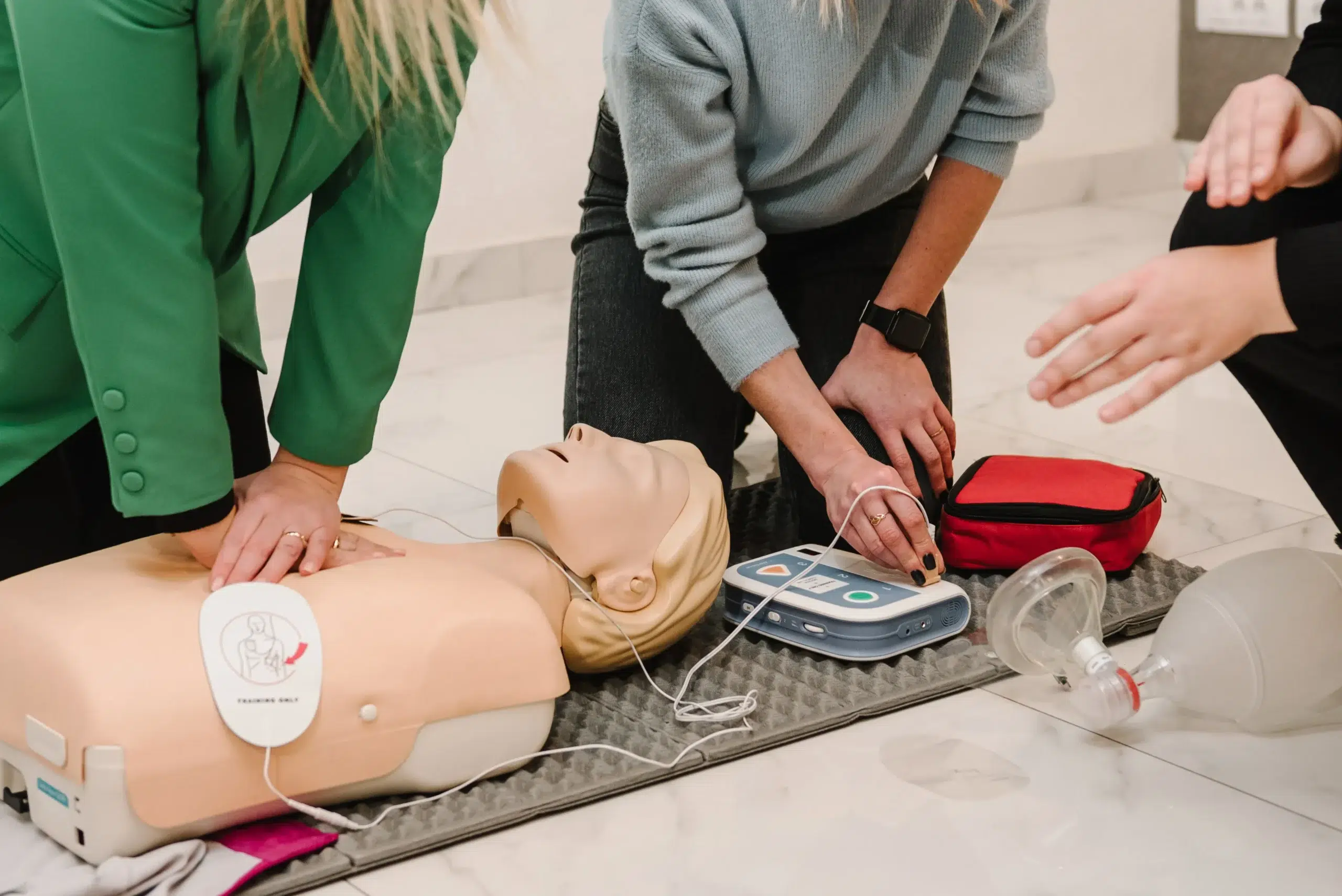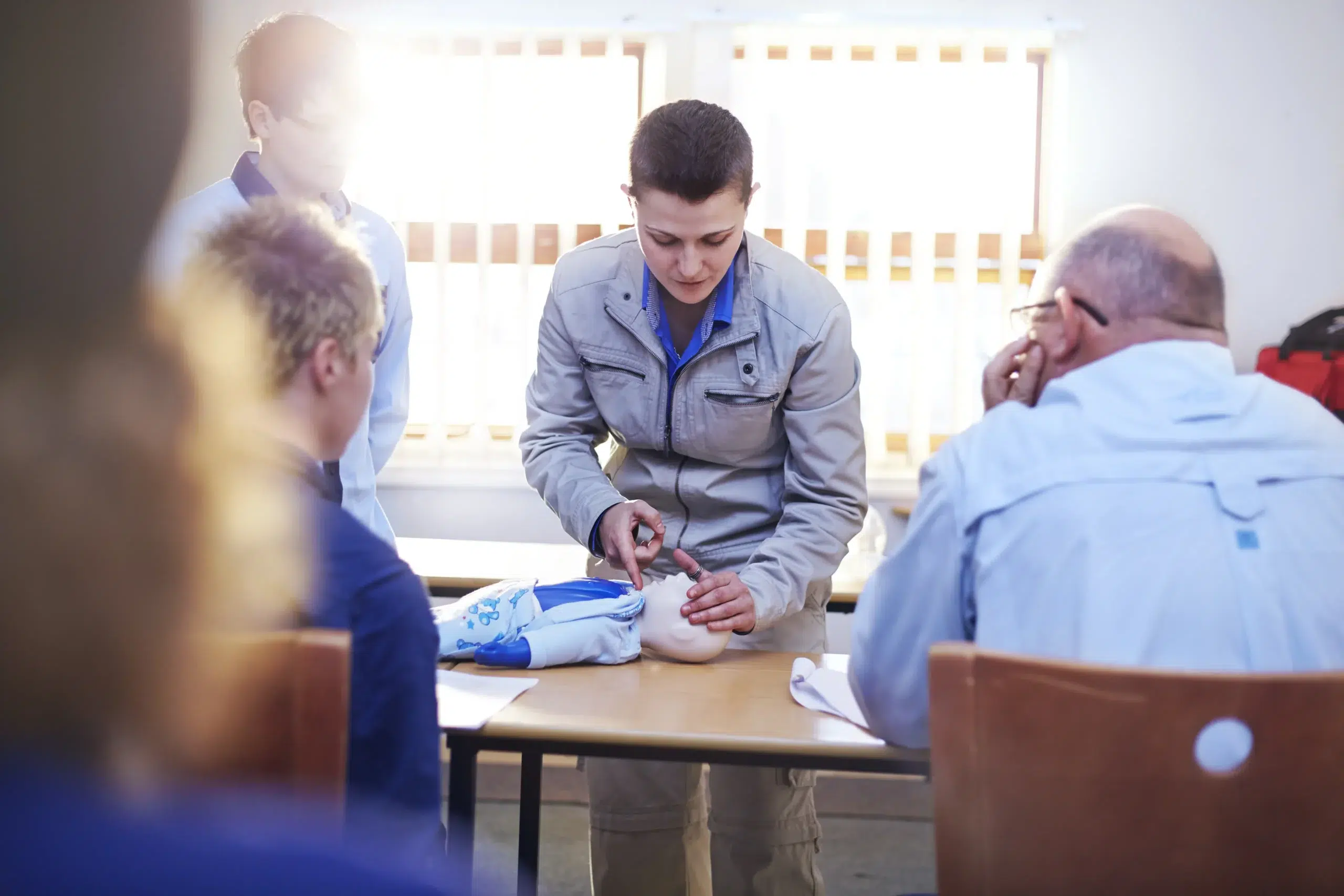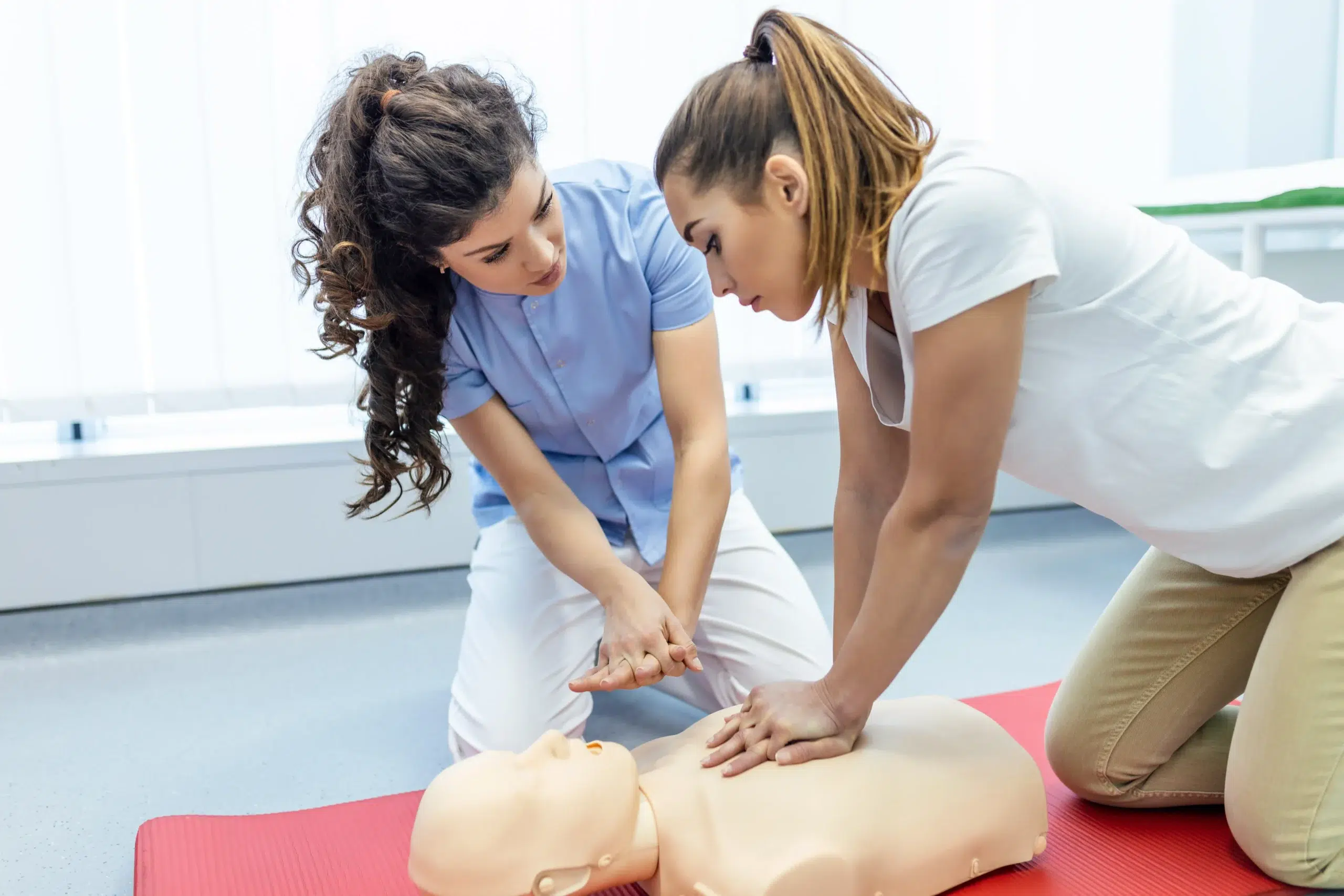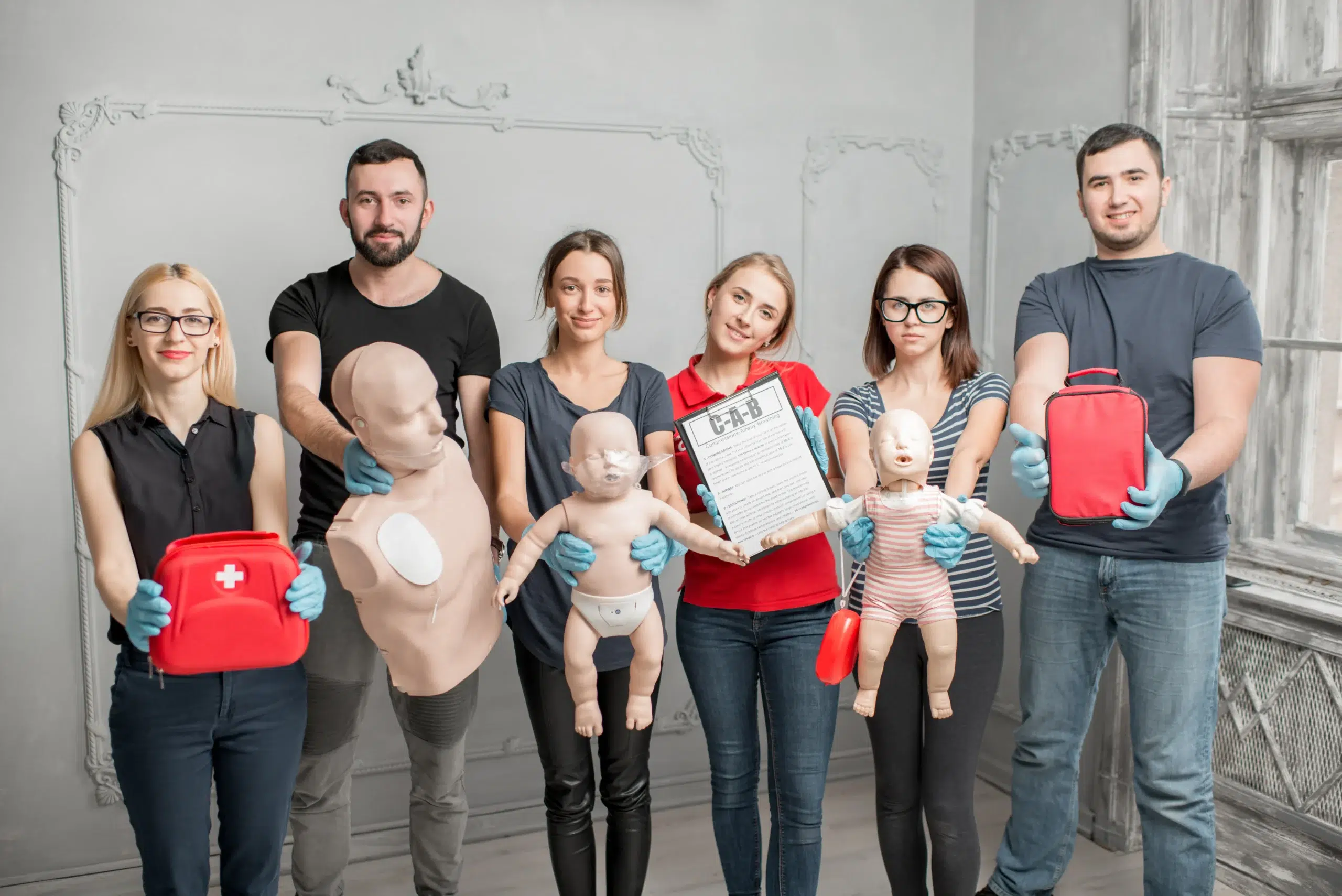Emergencies happen, and knowing CPR can make all the difference. If you’re in Pleasant Hill, Walnut Creek, or Concord and looking to get CPR certified, this guide is for you. We’ll cover everything from the basics of CPR certification Pleasant Hill to the more advanced courses available. You’ll learn about the different types of certifications, like BLS and ACLS, and discover the benefits of choosing a reputable training provider like Pleasant Hill CPR Classes. We’ll also discuss the various course formats available, including in-person, online, and blended learning options, so you can find the best fit for your schedule and learning style. Finally, we’ll address common misconceptions about CPR certification and provide clear, actionable steps to get you started on your training journey.
Key Takeaways
- Find the right CPR class for you: Pleasant Hill offers a range of CPR certifications, from basic life support for everyday emergencies to advanced training for healthcare professionals. Consider your individual needs and career goals when selecting a course.
- Choose a reputable training provider: Look for an AHA-accredited provider like Pleasant Hill CPR Classes, with experienced instructors, a comfortable learning environment, and a low price guarantee.
- Stay current with your CPR skills: Maintain your certification by taking refresher courses or exploring convenient options like RQI programs, especially if you’re a healthcare professional. Regular practice ensures you’re always prepared to respond effectively in a medical emergency.
What is CPR Certification in Pleasant Hill?
CPR certification in Pleasant Hill gives you the skills to respond to medical emergencies where someone’s breathing or heartbeat has stopped. These skills can be truly life-saving, equipping you to help anyone in a critical situation—family, friend, coworker, or even a stranger.
Several organizations offer CPR certification courses, including the American Heart Association (AHA) and the American Red Cross. These courses cover essential techniques for performing CPR on adults, children, and infants. You’ll learn to recognize the signs of a cardiac arrest, perform chest compressions and rescue breaths, and use an automated external defibrillator (AED). The training typically involves hands-on practice, building your confidence to apply these skills in a real emergency. Pleasant Hill has several reputable training centers, ensuring convenient access to these vital courses. CPR Education offers various classes for individuals and groups. The CPR Training Center provides AHA-authorized courses for both healthcare professionals and the public. The American Red Cross also offers CPR and AED training in the area. Getting CPR certified not only prepares you to handle emergencies but also contributes to a safer community.
CPR Certification Courses: What’s Available?
Choosing the right CPR certification course depends on your individual needs and career goals. Pleasant Hill offers a variety of options, from basic life support for everyday emergencies to advanced training for healthcare professionals. Let’s explore the different courses available:
Basic Life Support (BLS)
BLS certification gives you the skills to respond to life-threatening emergencies, like cardiac arrest and choking. You’ll learn how to perform CPR, use an AED, and provide basic airway management. This course is a good fit for healthcare providers, first responders, and anyone who wants to be prepared. Pleasant Hill CPR Classes offers a streamlined path to BLS certification through the American Heart Association’s RQI program. This approach focuses on high-quality CPR skills and is especially helpful for medical professionals.
Advanced Cardiovascular Life Support (ACLS)
ACLS certification builds on the foundation of BLS, providing advanced training for healthcare professionals who manage cardiopulmonary arrests and other cardiovascular emergencies. This course covers topics such as airway management, pharmacology, and ECG interpretation. ACLS training is essential for physicians, nurses, paramedics, and other healthcare providers in critical care settings.
Pediatric Advanced Life Support (PALS)
PALS certification focuses on the specific skills needed to respond to emergencies involving infants and children. The course covers pediatric assessment, resuscitation, and stabilization techniques. PALS certification is essential for pediatricians, pediatric nurses, emergency medical technicians, and other healthcare professionals who care for young patients.
First Aid and CPR Combination Courses
Combining First Aid and CPR training offers a well-rounded approach to emergency preparedness. You’ll learn how to handle a wide range of situations, from minor injuries like cuts and burns to life-threatening emergencies like heart attacks and strokes. These combination courses are valuable for anyone who wants to be prepared for various emergencies. They are also often a requirement for childcare providers, teachers, and other professionals working with children.
Find a Reputable CPR Training Provider
Finding the right CPR training provider is crucial for a high-quality learning experience. Here’s what to consider:
American Heart Association Accreditation
Look for providers accredited by a recognized organization like the American Heart Association (AHA). AHA accreditation ensures the training meets strict quality and effectiveness standards, giving you confidence in your certification. Pleasant Hill CPR Classes is proud to be an AHA-authorized training center, offering courses aligned with these standards.
Instructor Qualifications and Experience
Experienced, qualified instructors make all the difference. Instructors should have extensive experience and up-to-date knowledge of CPR techniques. Ask about the instructors’ backgrounds and credentials when choosing a provider. At Pleasant Hill CPR Classes, our instructors bring real-world experience to the classroom, providing personalized guidance and support.
Facility Standards and Equipment
A positive learning environment is essential for effective training. Choose a provider with a comfortable and well-equipped facility. Up-to-date training equipment allows you to practice skills realistically and build confidence. We prioritize a low-stress learning environment at Pleasant Hill CPR Classes, ensuring you feel comfortable throughout your training.
Top CPR Training Providers in Pleasant Hill
Several reputable CPR training providers serve the Pleasant Hill area. Here are a few options:
Pleasant Hill CPR Classes
We offer a comprehensive range of AHA-certified courses, including BLS, ACLS, PALS, and First Aid/CPR combination training. Our low price guarantee ensures you receive high-quality training at a competitive price. We also offer RQI programs for healthcare professionals.
CPR Education
CPR Education provides various CPR and First Aid training courses tailored to different needs and skill levels. They are a good option for individuals or groups.
CPR Training Center
The CPR Training Center offers a wide selection of CPR and advanced life support courses, including ACLS, BLS, and PALS.
American Red Cross
The American Red Cross is another well-known provider of CPR and First Aid training. They offer instructor-led courses and are a nationally recognized organization.
Course Formats: Find Your Fit
Finding the right CPR course format is key to a successful learning experience. Whether you thrive in a classroom, prefer the flexibility of online learning, or appreciate a combination of both, there’s an option that suits your needs. Let’s explore the various CPR course formats available in Pleasant Hill.
Traditional In-Person Classes
In-person CPR classes offer a hands-on learning environment ideal for those who value direct interaction with instructors and classmates. These classes provide real-time feedback and allow you to practice skills on mannequins in a controlled setting. Both CPR Education and the CPR Training Center in Pleasant Hill offer in-person CPR training, ensuring you have local options. This format fosters a sense of community and allows for immediate clarification of any questions.
Online CPR Certification Options
Online CPR certification provides a convenient alternative for those with busy schedules or limited access to in-person classes. Reputable online programs, particularly those accredited by organizations like the American Heart Association (AHA), deliver comprehensive training through videos, interactive modules, and assessments. It’s essential to confirm that the online certification you choose meets the requirements of your employer or organization, as some may mandate in-person training. Always verify the validity of online CPR certifications beforehand.
Blended Learning Approaches
Blended learning combines online coursework with in-person skills sessions. This format offers the flexibility of online learning while still providing the opportunity for hands-on practice and personalized instruction. The American Red Cross offers blended learning CPR courses, allowing you to learn the theoretical aspects online and then refine your skills during in-person sessions. This approach can be particularly effective for reinforcing learning and ensuring competency in performing CPR.
CPR Certification Costs in Pleasant Hill
CPR certification costs in Pleasant Hill, CA, vary based on several factors, including the type of course, the training provider, and whether you’re taking a class individually or as part of a group. Understanding these factors will help you find a course that fits both your needs and your budget.
Price Ranges for Different Courses
Different CPR certifications have different price points. Basic Life Support (BLS) certification, for example, is typically less expensive than Advanced Cardiovascular Life Support (ACLS). A combined CPR and First Aid certification might also cost more than a CPR-only course. Providers like CPR Education offer a range of CPR classes near Pleasant Hill with varying prices depending on the specific content. The American Red Cross also offers various levels of CPR certification, including instructor courses, with prices listed on their site.
Group Discounts and Special Offers
Many training centers offer discounts for group bookings, a great option for businesses, community organizations, or even a group of friends. CPR Education provides group discounts and on-site training to make training more accessible. The CPR Training Center also welcomes group training sessions, allowing organizations to certify multiple staff members at once. These discounts can significantly reduce the per-person cost.
Pleasant Hill CPR Classes’ Low Price Guarantee
Pleasant Hill CPR Classes is committed to offering competitive pricing on all courses. We believe that high-quality safety training should be accessible to everyone. Our low price guarantee ensures you’re getting the best possible value. We offer a range of courses, from basic CPR to specialized certifications like the Resuscitation Quality Improvement (RQI) program for healthcare professionals. Contact us to learn more about our courses and pricing.
Register for a CPR Course: How To
Getting CPR certified is straightforward. Here’s a simple breakdown of how to register for a course in Pleasant Hill:
Check Course Schedules
First, find a training center that works for you. Pleasant Hill CPR Classes offers daily CPR certification courses for BLS, ACLS, PALS, First Aid, and more. Check their website for the most up-to-date schedule and find a class time that fits your availability. Many providers also offer weekend and evening classes to accommodate busy schedules.
Enroll in a Course
Once you’ve found a class, the next step is to enroll. Most providers offer online registration through their websites. The enrollment process usually involves providing your contact information, selecting your desired course, and making a payment. Some training centers may also offer phone registration.
What to Expect on Training Day
Knowing what to expect can help you feel prepared for your CPR training. Arrive a few minutes early to get settled. Bring a notepad and pen to take notes, though most courses provide materials. You can expect a combination of classroom instruction and hands-on practice. Instructors will guide you through the steps of CPR, demonstrate proper techniques, and provide opportunities to practice on mannequins. You’ll also learn how to use an AED and essential first-aid skills. The goal is for you to leave feeling confident in your ability to respond effectively in an emergency.
Benefits of CPR Certification for Healthcare Professionals
As a healthcare professional, your skills and knowledge directly impact patient outcomes. CPR certification is more than just a credential—it’s a vital tool that equips you to provide the best possible care. Let’s explore the key benefits of maintaining a current CPR certification.
Enhance Patient Care
High-quality CPR significantly improves a patient’s chances of survival. Studies show that healthcare providers who receive regular CPR training, especially with feedback devices, demonstrate greater proficiency. This detailed feedback helps identify areas for improvement and encourages consistent practice, ultimately leading to better patient care. At Pleasant Hill CPR Classes, we emphasize hands-on training and provide the guidance you need to deliver effective CPR.
Comply with Regulations
Most healthcare facilities require their staff to maintain current CPR certification to comply with industry standards and regulations. The American Heart Association RQI program offers a streamlined and efficient way to meet these requirements. RQI programs provide flexible online learning modules combined with hands-on skills sessions, making it easier to fit certification into your busy schedule. Pleasant Hill CPR Classes specializes in RQI programs, offering a convenient way for medical professionals in Pleasant Hill, Walnut Creek, and Concord to stay certified.
Advance Your Career
CPR certification demonstrates your commitment to professional development and patient well-being. It can enhance your resume, making you a more competitive candidate for jobs and promotions. Many employers view CPR certification as a valuable asset, recognizing the importance of skilled professionals. Investing in your CPR training can open doors to new opportunities and show your dedication to providing high-quality care.
Increase Confidence in Emergencies
Knowing you can effectively respond in a medical emergency brings a sense of confidence and preparedness. CPR training addresses common concerns about performing CPR correctly, including hesitation about mouth-to-mouth resuscitation and fear of injuring the patient. Through hands-on practice with training mannequins, you’ll develop the skills and confidence to act quickly and decisively in critical situations. Our instructors at Pleasant Hill CPR Classes create a supportive learning environment where you can ask questions and gain the confidence you need.
Maintain Your CPR Certification
Keeping your CPR skills sharp is crucial for responding effectively in emergencies. This section covers how to maintain your certification and stay up-to-date with the latest guidelines.
Renewal Requirements and Timeframes
CPR certifications typically expire every two years. To remain certified, you’ll need to renew your certification before it lapses. Check your certification card for the expiration date and plan to take a refresher course in advance. Don’t let your skills expire—stay prepared to save a life.
Continuing Education Options
Several options exist for renewing your CPR certification. You can retake the same course you initially completed or, in some cases, opt for a shorter refresher course. For healthcare professionals, continuing education programs like the American Heart Association’s Resuscitation Quality Improvement (RQI) program offer a flexible and efficient way to maintain certification. Pleasant Hill CPR Classes offers a variety of RQI courses to fit your schedule.
RQI Programs for Healthcare Professionals
RQI programs are specifically designed for healthcare providers and offer several advantages over traditional CPR renewal courses. These programs use innovative technology, like feedback devices, to improve the quality and consistency of CPR training. Studies show that incorporating these feedback devices enhances skill retention and performance. RQI programs also offer a more flexible learning experience, allowing healthcare professionals to complete training at their own pace and convenience. If you’re a medical professional in Pleasant Hill, consider the benefits of RQI certification to maintain your skills and stay at the forefront of resuscitation techniques.
Common CPR Certification Misconceptions
It’s easy to get confused about CPR certifications, especially with so much information online. Let’s clear up some common misconceptions so you can make informed decisions about your training.
Online vs. In-Person Certification Validity
One common question is whether online CPR certifications are valid. The short answer is: it depends. While online courses offer flexibility for learning the cognitive aspects of CPR, they often lack the hands-on practice crucial for effective performance. A blended learning approach—combining online coursework with in-person skills sessions—is often the best way to gain both the knowledge and the practical skills. Always check if the online or blended learning course is accepted by your employer or governing body. For many healthcare professionals, a fully in-person course is required.
Differences Between Certification Types
CPR isn’t one-size-fits-all. Different certifications cater to various needs and professions. Basic Life Support (BLS certification) is typically recommended for healthcare providers and those in related fields. Heartsaver courses are designed for the general public and cover essential life-saving techniques. Understanding the differences will help you choose the right course for your situation. If you’re unsure which certification you need, reach out to a training provider like Pleasant Hill CPR Classes for guidance. We’re happy to help you find the right fit.
Who Should Learn CPR
Contrary to popular belief, you don’t need to be a medical professional to learn CPR. In fact, anyone can and should learn this life-saving skill. While certification provides structured learning and validation, even basic knowledge of CPR can make a difference in an emergency. Knowing how to perform chest compressions and provide basic life support can significantly improve the chances of survival for someone experiencing cardiac arrest. Consider taking a CPR course to feel confident in your skills.
Certification Renewal Necessity
CPR skills and knowledge can fade over time, which is why renewal is essential. Most CPR certifications are valid for two years. Check with your certifying organization, such as the American Heart Association, for specific renewal requirements. Pleasant Hill CPR Classes offers a variety of courses, including renewal courses and our RQI program, to help you stay up-to-date. RQI is a particularly efficient way for healthcare professionals to maintain their skills and certifications. Contact us today to learn more about our convenient and affordable options.
Choose the Right CPR Certification
Picking the right CPR certification boils down to understanding your needs and doing a little research. Whether you’re in Pleasant Hill, Walnut Creek, or Concord, the right certification can be invaluable.
Assess Your Needs
First, consider why you want CPR certification. Are you a healthcare professional maintaining your license? Are you a childcare worker required to have training, or do you want to be prepared for emergencies at home? Understanding your motivation will guide you toward the right course. CPR and First-Aid training are valuable for anyone, but your specific certification needs may vary. For example, healthcare providers in Pleasant Hill often require Advanced Cardiovascular Life Support (ACLS), while childcare workers may need Pediatric Advanced Life Support (PALS).
Compare Course Options and Providers
Once you know what you need, explore the options. Several organizations offer CPR certification, including the American Heart Association (AHA) and the American Red Cross. Look at what each course covers. Some focus on basic CPR for adults, while others include training for infants and children or AED use. Pleasant Hill has several reputable training centers, so compare what they offer. The CPR Training Center is an AHA-authorized center with a history of comprehensive courses. You can also find courses through Safety Training Seminars and other local providers. Consider factors like class schedules, location, and instructor experience. Our low price guarantee ensures you’re getting the best value for your training.
Make an Informed Decision
Finally, put everything together to make the best choice. If you’re a healthcare provider, prioritize a course aligning with your hospital’s requirements and offering continuing education credits. If you’re a busy parent, an online or blended learning option might be more convenient. Think about your learning style. Some people thrive in a traditional classroom, while others prefer a self-directed approach. Check if the provider offers things like low-stress learning environments or flexible scheduling. Contact training centers directly with questions. A good provider will help you find the perfect fit. If you’re considering becoming a CPR instructor, research the specific requirements for instructor training, such as those from the American Red Cross. With a little research, you can find the right CPR certification to meet your needs and empower you to save lives. Contact us today to learn more about our courses and how we can help you achieve your certification goals.
Related Articles
- CPR, BLS, ACLS, PALS, & First-aid Courses in Pleasant Hill, CA
- BLS CPR Classes in Pleasant Hill, CA – Pleasant Hill CPR Classes
- AHA ACLS Classes in Pleasant Hill, CA – Pleasant Hill CPR Classes
- AHA PALS Classes in Pleasant Hill, CA – Pleasant Hill CPR Classes
- CPR & First-aid Classes in Pleasant Hill, CA – Pleasant Hill CPR Classes
Frequently Asked Questions
What’s the difference between BLS and Heartsaver CPR?
BLS (Basic Life Support) certification is designed for healthcare providers and those in related fields, covering a broader range of skills like using an AED and two-rescuer CPR. Heartsaver courses are geared towards the general public, focusing on essential CPR and first aid techniques for adults, children, and infants.
How long is a CPR certification valid, and how do I renew it?
Most CPR certifications are valid for two years. You’ll need to take a renewal course before your certification expires. Check with your certifying organization or training provider for specific renewal requirements and available courses. Some organizations offer streamlined renewal options, like the RQI program, which can be more convenient for healthcare professionals.
Are online CPR certifications accepted?
Acceptance of online CPR certifications varies. While online courses offer flexibility, some employers and organizations require in-person training, especially for healthcare providers. Blended learning, combining online coursework with in-person skills sessions, is a good compromise. Always confirm whether a specific online or blended learning course meets the requirements of your workplace or governing body.
How much does CPR certification cost in Pleasant Hill?
CPR certification costs vary depending on the course type, provider, and any group discounts. Basic CPR courses are generally less expensive than advanced certifications like ACLS or PALS. Contact different training providers in Pleasant Hill to compare prices and find a course that fits your budget. Many providers offer discounts for group bookings, which can be a cost-effective option for businesses or community groups.
What if I’m nervous about performing CPR in a real emergency?
It’s normal to feel apprehensive about using CPR in a real-life situation. Reputable CPR courses address these concerns by providing ample opportunities to practice on mannequins in a safe and supportive environment. Experienced instructors can guide you through the steps, answer your questions, and help you build the confidence to respond effectively in an emergency. Don’t hesitate to discuss any anxieties with your instructor – they’re there to help you feel prepared.
This article was written for free by MEGA SEO.
